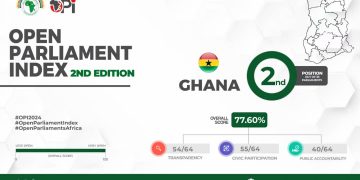Nigeria’s border closure brings gains, losses, hardship
When Nigeria shut its land borders in August 2019, protecting local farmers, boosting local food production and curbing arms influx that threatened the country’s security were notable buzz words. More than two and half years later, the government has been unable to articulate what the country gained even though proponents believe it curbed smuggling.
Petrol, at its subsidised cost in Nigeria, is the cheapest among neighbouring countries. At N167 per litre on the average in Nigeria, it sells for N419 in Benin, N406 in Niger, N360 in Chad, and N438 in Cameroon. The incentive to smuggle petrol out of Nigeria was still in place when the borders were closed: fuel subsidy.
Analysis of trade data shows, however, that Nigeria not only lost out in making money from trade within the region, but insecurity has also worsened. If curbing insecurity was an objective, available data suggest that it was not achieved.
The Nigeria Security Tracker by the Council on Foreign Relations shows there were 8,075 deaths due to violence in 2019 (the year the borders were closed), but by 2020, the number of deaths increased to 9,663 and the number of deaths was 10,343 by 202.
In trade, while Nigeria’s imports from the ECOWAS region declined during the border closure, it was marginal but so did exports, except at a higher margin. Nigeria’s exports to the sub-region (much of which happen by land), declined from N2.24 trillion in 2019 to N841 billion in 2020 and N1.24 trillion in 2021.
While some local farmers reported making more money during the border closure, it was a nightmare for others.
A BusinessDay investigation in 2020 in some border communities of Ogun State had found that farmers had become victims of the border closure that was meant to protect them. Security agencies, notably the Customs, Police, and Army, using a document bearing the name of the Nigeria Agricultural Quarantine Service, had extorted hundreds of millions of naira from farmers.
Read: Gov’t issues cedi denominated 2-year note and 5-year bond
They told the farmers that being in close proximity to the borders meant their farm produce, cultivated on Nigerian soil, was no longer permitted “inside” Nigeria along with everything else suspected to have been smuggled.
To bring their farm produce “into Nigeria”, even though they were already Nigerians producing on Nigerian soil, they had to obtain the Quarantine document that was a payment voucher at dozens of checkpoints before they arrived at major markets in Abeokuta and Lagos, more if they ventured to go “deeper into Nigeria”. Yet, they were supposed to be principal beneficiaries of the border closure.
In December 2020, one month to the commencement of the Africa Continental Free Trade Agreement, Nigeria reopened four out of eight major land borders: Seme, Illela, Maigatari and Mfun, under what it termed a phased reopening arrangement. Last month, the Federal Government approved the re-opening of the Idiroko, Jibiya, Kamba, and Ikom land borders, after 32 months.
“Nigeria gained absolutely nothing from the border closure,” says Emmanuel Ijewere, vice president of Nigeria Agribusiness Group. “The reason is simple; Nigerians are smart people and when they have an intention, and government obstructs it, they will find a way around it because there are people in government that will connive with them to achieve that goal.”
According to him, during events such as the border closure, rather than end whatever the government may have considered problems, actors are simply swapped. This time, “relations of those who are supposed to be gatekeepers take over from genuine business people or become commissioned agents,” says Ijewere.
According to the Institute for Security Studies, trade officials it interviewed said the closure had probably resulted in new smuggling routes as illicit dealers are determined to move their goods across borders.
They said products – including rice – were likely to have been smuggled in smaller consignments, given the difficulty of driving heavy-duty trucks through alternate routes. Already, informal trading via unapproved routes is a long-standing economic practice in local communities.
For Tunji Falade, a former chairman of the agriculture and agro-Allied sector, Lagos Chamber of Commerce and Industry, “Nigeria made some gains, the clampdown on smugglers, especially in the area of food, drugs, and firearms reduced influx of these items, which could be termed a gain”.
He, however, says: “No country can successfully close its borders permanently because no country is an island. The most important thing is to address the real problems that led to the closure which is the porosity of our borders.”
For him, the more permanent solution is addressing the factors that led to the government thinking a border closure was required in the first place.








